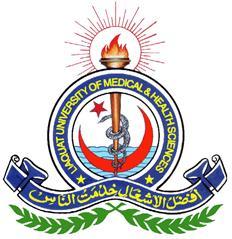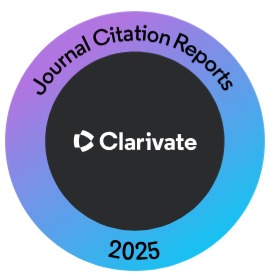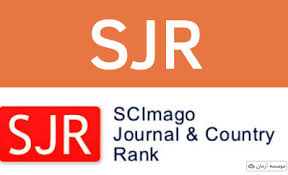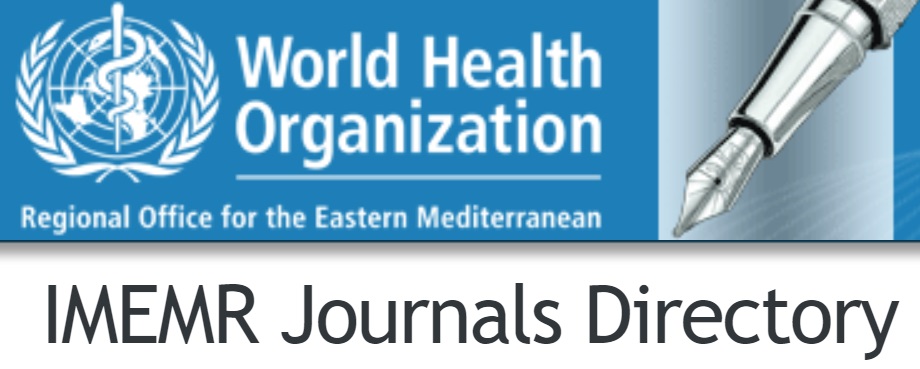Effect of the Quranic Verses Recitation on Depressive Symptoms among Cancer Patients at Tertiary Care Hospital, Karachi
Keywords:
Recitation, Depression, Cancer, Tretiary care hospitalAbstract
OBJECTIVE: To assess the effectiveness of recitation of the Quranic verses on depressive symptoms among cancer patients.
METHODOLOGY: This Pre-Post quasi-experimental single-group study was conducted from December 2021 to January 2022 in the Oncology department at Dr. Ziauddin Hospital Karachi. A total of 50 depressed Cancer patients participated in the study. Participants were recruited through the Consecutive sampling technique, which included being Muslim, having a one-month hospital stay, and a diagnosis of depression. Participants were assessed through the Hamilton Depression Scale (HAM-D). Data was analyzed through frequency and proportions for variables, and median and interquartile range differences were compared using the Wilcoxon signed-rank test. The association of depression was checked by Spearman rank correlation.
RESULTS: Out of 50 participants, 32(64%) were males, and 18(36%) were females; 46(92%) were married; 50(100%) participants were belongs to Muslim religion and had a length of stay for 1 to 3 months durations. The comparison of HAM-D total scores revealed a median of 20.5 (IQR= 21-20) in the pre-test, which decreased to 13 (IQR= 14-12) in the post-test after one month of intervention. This reduction was statistically significant (p<0.05).
CONCLUSION: The Quranic verses recitation is an effective and safe therapy for reducing depressive symptoms among cancer patients. The depression score significantly reduced after this intervention.
References
Nocini R, Molteni G, Mattiuzzi C, Lippi G. Updates on larynx cancer epidemiology. Chinese J Cancer Res. 2020; 32(1): 18. doi: 10.21147/j.issn.1000-9604.2020.01.03.
Ali A, Manzoor MF, Ahmad N, Aadil RM, Qin H, Siddique R et al. The burden of cancer, government strategic policies, and challenges in Pakistan: A comprehensive review. Front Nutr. 2022; 9: 940514. doi: 10.3389/fnut.2022.940514.
Tsaras K, Papathanasiou IV, Mitsi D, Veneti A, Kelesi M, Zyga S et al. Assessment of depression and anxiety in breast cancer patients: prevalence and associated factors. Asian Pacif J Cancer Prevent. 2018; 19(6): 1661. doi: 10.22034/APJCP.2018.19.6.1661
Kumar C. Psychosocial well-being of individuals. Qual Educ. 2020: 676-86.
Mushtaq R, Ansar A, Anwar Bibi HK, Ali J, Islam A, Saleem F et al. Frequency of depression among cancer patients. Ann PIMS. 2017; 1815: 2287.
Lopes-Júnior LC, Rosa GS, Pessanha RM, Schuab SI, Nunes KZ, Amorim MH. Efficacy of the complementary therapies in the management of cancer pain in palliative care: A systematic review. Revista latino-americana de enfermagem. 2020; 28. doi: 10.1590/1518-8345.4213.3377.
Haller H, Anheyer D, Cramer H, Dobos G. Complementary therapies for clinical depression: an overview of systematic reviews. BMJ Open. 2019; 9(8): e028527. doi: 10.1136/bmjopen-2018-028527.
Qureshi NA, Khalil AA, Alsanad SM. Spiritual and religious healing practices: some reflections from Saudi National Center for Complementary and Alternative Medicine, Riyadh. J Rel Health. 2020; 59: 845-69. doi: 10.1007/s10943-018-0677-0.
Paul Victor CG, Treschuk JV. Critical literature review on the definition clarity of the concept of faith, religion, and spirituality. J Holistic Nursing. 2020; 38(1): 107-13. doi: 10.1177/0898010119895368.
Aslam A, Ahmer Z, Ahmed A. Spiritual Health Among Pakistani Religious and Non-Religious Professional: A Comparative Cross-Sectional Study Highlighting the Role of Regional Beliefs and Practices. Adv Mind Body Med. 2020; 34(3): 18-24.
Yunitasari E, Sutrisno IT, Santoso B. The effects of spiritual caring with murottal on stress anxiety, and depression among cervical cancer patients undergoing chemotherapy. Eur Asian J BioSci. 2020; 14(1).
Litalien M, Atari DO, Obasi I. The influence of religiosity and spirituality on health in Canada: A systematic literature review. J Rel Health. 2022; 61(1): 373-414. doi: 10.1007/s10943-020-01148-8.
WHO. Regional Office for Africa [Website]. [cited 2023 Jul 18]. Available from: https://www.afro.who.int/sites/default/files/pdf/generic/who_constitution_en.pdf.
Al?Jubouri MB, Isam SR, Hussein SM, Machuca?Contreras F. Recitation of Quran and music to reduce chemotherapy?induced anxiety among adult patients with cancer: A clinical trial. Nursing Open. 2021; 8(4): 1606-14. doi: 10.1002/nop2.781.
Hashmi AM, Naz S, Asif A, Khawaja IS. Urdu translation of the Hamilton Rating Scale for Depression: Results of a validation study. Pak J Med Sci. 2016; 32(6): 1479. doi: 10.12669/pjms.326.11399.
Elkhalloufi F, Boutayeb S, Alaoui YL, Zakkouri FA, Jaouhari ME, Errihani H. Association Between Religiosity, Depression, and Anxiety Among Moroccan Cancer Patients. J Rel Health. 2022; 61(6): 4382-97. doi: 10.1007/s10943-022-01538-0.
Farooqui AA, Waqas M, Iftikhar A, Tariq MJ, Anwer F. Prevalence of major depression among cancer patients: Single center tertiary care hospital experience from Lahore, Pakistan. Blood. 2019; 134: 5784.
Pramesona BA, Taneepanichskul S. The effect of religious intervention on depressive symptoms and quality of life among Indonesian elderly in nursing homes: A quasi-experimental study. Clin Intervent Aging. 2018: 473-83. doi: 10.2147/CIA.S162946.
Durmu? M, Ekinci M. The effect of spiritual care on anxiety and depression level in patients receiving hemodialysis treatment: a randomized controlled trial. J Rel Health. 2022; 61(3): 2041-55. doi: 10.1007/s10943-021-01386-4.
Alagizy HA, Soltan MR, Soliman SS, Hegazy NN, Gohar SF. Anxiety, depression and perceived stress among breast cancer patients: single institute experience. Middle East Current Psychiatry. 2020; 27: 1-10. doi:10.1186/s43045-020-00036-x.
Abbas Q, Kanwal U, Saeed W, Khan MU, Shahzadi M, Faran M. Relationship of Muslim religiosity and death anxiety with the mediating effect of optimism and depression among cancer patients. 2021; 71(3): 1-9. doi: 10.1007/s10943-021-01415-2.
Fahd E, Alaoui YL, Eljaouhari M, Errihani H, Az-zahra ZF. The impact of religious practices on depression and anxiety among Moroccan cancer patients. doi: 10.21203/rs.3.rs669324/v1.
Saged AA, Sa'ari CZ, Abdullah MB, Al-Rahmi WM, Ismail WM, Zain MI et al. The effect of an Islamic-based intervention on depression and anxiety in Malaysia. J Rel Health. 2022; 61(1): 79-92. doi: 10.1007/s10943-021-01484-3.
Rafique R, Anjum A, Raheem SS. Efficacy of Surah Al-Rehman in managing depression in Muslim women. J Rel Health. 2019; 58: 516-26. doi: 10.1007/s10943-017-0492-z.
Song I, Baek K, Kim C, Song C. Effects of nature sounds on the attention and physiological and psychological relaxation. Urban Forestry & Urban Greening. 2023; 86: 127987. doi: 10.1016/j.ufug.2023.127987.
Fatmawati A, Ridlayanti A, Nurlatifah N. The Effectiveness of Murrotal Al-Quran in Third Trimester Pregnant with Maternal Mental Disorder. Open Access Macedonian J Med Sci. 2022; 10(G): 499-503.
Downloads
Published
How to Cite
Issue
Section
License
Copyright (c) 2024 Journal of Liaquat University of Medical & Health Sciences

This work is licensed under a Creative Commons Attribution-NonCommercial-ShareAlike 4.0 International License.
Submission of a manuscript to the journal implies that all authors have read and agreed to the content of the undertaking form or the Terms and Conditions.
When an article is accepted for publication, the author(s) retain the copyright and are required to grant the publisher the right of first publication and other non-exclusive publishing rights to JLUMHS.
Articles published in the Journal of Liaquat University of Medical & health sciences are open access articles under a Creative Commons Attribution-Noncommercial - Share Alike 4.0 License. This license permits use, distribution and reproduction in any medium; provided the original work is properly cited and initial publication in this journal. This is in accordance with the BOAI definition of open access. In addition to that users are allowed to remix, tweak and build upon the work non-commercially as long as appropriate credit is given and the new creations are licensed under the identical terms. Or, in certain cases it can be stated that all articles and content there in are published under creative commons license unless stated otherwise.























